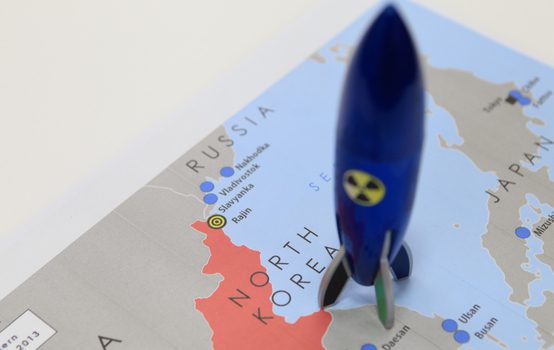North Korea and Public Opinion

The Chicago Council on Global Affairs has conducted a survey of American public opinion on foreign policy, and it has reported the results on issues related to North Korea here. There were several interesting findings, but the ones that grabbed my attention were the responses to questions about what the U.S. should do in the event that North Korea doesn’t denuclearize.
When asked whether they supported or opposed various U.S. actions in response to North Korea’s refusal to give up nuclear weapons, 83% of respondents oppose accepting that North Korea will possess and build more nuclear weapons, and 66% oppose accepting that North Korea will possess the weapons it has as long as it agreed not to build more. Opposition to accepting North Korea as a nuclear-weapons state is most intense among Republicans and weaker among Democrats and independents, but it is the broad majority position for all three groups. Opposition to accepting that North Korea will retain its nuclear arsenal seems unusually high, but more than a decade of threat inflation has apparently made the manageable threat from North Korea’s arsenal seem intolerable to most of the public. When there is overwhelming bipartisan insistence on denuclearization as the goal of U.S. policy, accepting that it won’t ever happen naturally becomes the unpopular minority view.
The good news is that there is broad opposition to starting a war with North Korea. Only 25% support invasion and regime change, and just 37% support airstrikes on North Korea’s nuclear facilities. Considering that either of these options would likely trigger a major war and possible use of nuclear weapons, it is disturbing that these numbers are as high as they are. 34% of Republicans support the insane invasion/regime change option, and 55% of them support airstrikes. It is alarming that there is still a significant constituency in the U.S. willing to initiate illegal preventive wars even against a nuclear-armed adversary. It shows the degree to which knee-jerk military interventionism remains the default response for a large number of Americans in spite of the colossal,costly failures of the last two decades.
North Korea isn’t going to give up its nuclear weapons, so it is worrisome that the public has been led to expect that denuclearization is the only acceptable outcome. At the moment, under one third of the respondents is willing to accept North Korea’s continued possession of nuclear weapons even if there is an agreement to prevent them from building more. The most realistic arms control goal for diplomacy with North Korea is to get them to agree to some kind of cap on the number of weapons they have, but the administration continues to mislead the public into thinking that North Korea has already committed to doing far more than this.